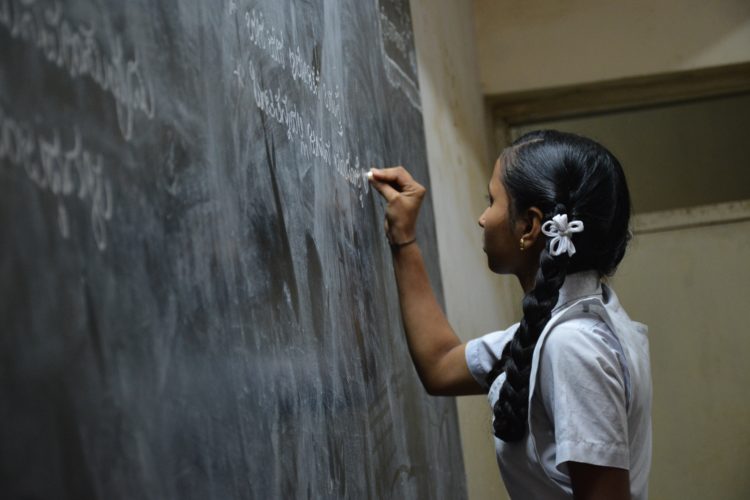We are pleased to announce the recipients of the 2020 William T. Grant Scholars awards. Launched in 1982, the Scholars Program supports the professional development of promising researchers in the social, behavioral, and health sciences who have received their terminal degrees within the past seven years. To date, the program has sponsored more than 185 talented researchers.
Scholars receive $350,000 to execute rigorous five-year research plans that stretch their skills and knowledge into new disciplines, content areas, or methods. As they commence their projects, they build mentoring relationships with experts in areas pertinent to their development, and further their research and professional development through annual retreats and workshops with fellow Scholars, Foundation staff, and other senior researchers.
Senior Vice President Vivian Tseng remarked, “We are excited to welcome these outstanding early career researchers to the William T. Grant Scholars Program. They are stretching their content and methodological expertise in new and exciting ways to address problems of inequality and improving the use of research evidence. Projects tackle racial inequality in schools, interrogating both racial equity policies and disciplinary practices; examine parental investment in the education of youth with disabilities transitioning out of special education; and explore the impact of campus policies on the mental health of transgender and gender nonconforming college students. This year we also awarded our first Scholars grant on Improving the Use of Research Evidence, which considers the role of research-brokering websites. By supporting their research agendas and professional development, the William T. Grant Scholars Program seeks to contribute to a bright new generation of scholars who will bring rigorous research to youth policies, programs, and practices in the U.S.”
2020 William T. Grant Scholars
Manasi Deshpande is an assistant professor in the department of Economics at the University of Chicago. With the Scholars award, she will investigate how expectations about the future availability of government benefits affect parental investment in children’s education and skills. Focusing on an intervention that gives families with information about the likelihood that their child will be removed from SSI at the age of 18, as well as provides resources like tutoring and assistance enrolling in support services, Deshpande’s study will both measure the effect of the information on parental investments and examine the mechanisms through which information affects beliefs, behavior, and ultimately outcomes. An economist with deep experience in conducting retrospective studies using administrative data, Deshpande will now develop expertise in randomized controlled trials, qualitative work, and adolescent development with the support of her mentors, including Ariel Kalil, professor of Public Policy at the Harris School at the University of Chicago, and David Meltzer, professor in the department of Medicine and affiliated faculty at the Harris School of Public Policy and the department of Economics at the University of Chicago.
Terrance L. Green is an associate professor in the department of Educational Leadership and Policy at the University of Texas. His Scholars research will examine whether and how local racial equity policies can address persistent and unequal educational outcomes of Black students. Green’s three-phase study will: 1) analyze 160 districts’ racial equity policies to determine whether policy components cluster in certain districts and the extent to which district characteristics predict classes that share similar racial equity policies, 2) estimate the associations between racial equity policies and Black students’ educational outcomes, and 3) explore how racial equity policies were developed and implemented, as well the various school contexts that support their impacts. Green is a qualitative researcher with expertise on school leadership, family-community engagement, and gentrification. To develop expertise in quantitative methods and content knowledge in educational policy analysis and effects, he will confer with an advisory panel on quantitative methods and meet monthly with his mentors, Robert Crosnoe, Professor of Sociology at the University of Texas at Austin, and Janelle Scott, Professor of Education Policy at the University of California, Berkeley.
Sarah Ketchen Lipson is an assistant professor in the department of Health Law Policy and Management at the Boston University School of Public Health. With her Scholars award, Lipson seeks to understand the lived experiences of transgender and gender nonconforming (TGNC) college students and the impact of campus policies on TGNC suicidality across intersectional identities. In this two-part study, Lipson will compare changes in suicidal ideation and attempts between TGNC and cisgender students on campuses with and without different types of policies, as well as conduct in-depth qualitative interviews with TGNC students to explore, among other questions, how they experience campus policies and internalize other structural systems. Lipson’s prior research has focused on describing individual-level predictors of mental health in college, and the proposed research reflects an intentional shift toward examining structural drivers of inequalities and the processes by which policies can reduce inequalities. Through independent study, annual meetings, coursework, and workshops, she seeks to develop new expertise in causal inference and mediation analysis, qualitative research, TGNC mental health, and theories drawn from sociology, psychology, and critical race and gender studies. Lipson’s mentors are Bryn Austin, professor of Adolescent and Young Adult Medicine at Boston Children’s Hospital and Harvard Medical School as well as Professor of Social and Behavioral Sciences at Harvard T.H. Chan School of Public Health, and David Jernigan, professor of Health Law Policy and Management at the Boston University School of Public Health.
Jayanti Owens is an assistant professor of sociology and international and public affairs at Brown University, in the department of Sociology and Watson Institute for International and Public Affairs. As research shows that racial differences in student behaviors account for only a small share of racial/ethnic differences in school discipline, Owens will investigate the extent to which such gaps are shaped by: 1) the kinds of schools students attend, 2) perceptions of how students of color behave, and 3) differential sanctions and supports for students of color. Owens will also examine how participation in a professional development intervention changes teachers’ beliefs about the sources of discipline disparities at their school and whether it makes a difference for their subsequent decisions about how to discipline students. Trained as a sociologist and social demographer, Owens will meet regularly with mentors Nicole Shelton, Stuart Professor of Psychology at Princeton University, and Dustin Tingley, Professor of Government at Harvard University. Shelton will mentor Owens in the social psychology of intergroup relations. Tingley will mentor Owens in computational text analysis and the development of an educational diagnostic tool to be used in teacher in-service training and professional development.
Valerie B. Shapiro is an associate professor in the School of Social Welfare at the University of California, Berkeley. With her Scholars award, Shapiro will explore how research-brokering websites can better engage educators to improve the acquisition and use of research evidence. In this multi-part project, Shapiro will first use data science approaches and usability research methods to examine their practicality and utility for organizations that share research online, as well as carry out experiments to assess user responses, collect feedback and insights from educators and website producers, and conduct construct validation studies for measuring the use of research evidence. Shapiro has expertise in measuring complex constructs related to the alignment of social emotional learning research and practice. Her mentors, Marti Hearst, Professor at the U.C. Berkeley School of Information and Division of Electrical Engineering and Computer Sciences, and Meredith Honig, Professor of Education Policy, Organizations, and Leadership at the University of Washington, will support Shapiro in stretching her expertise to incorporate new methods, theories, and approaches in the measurement of research use.





